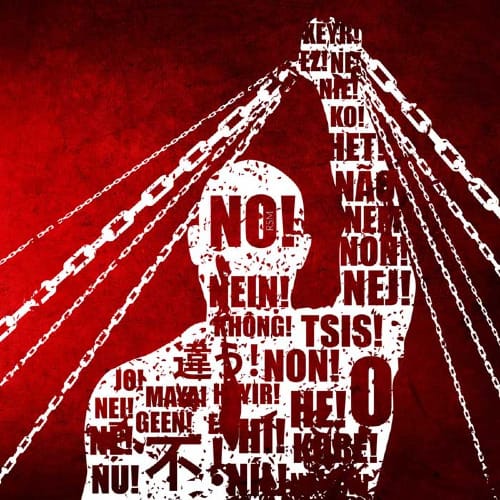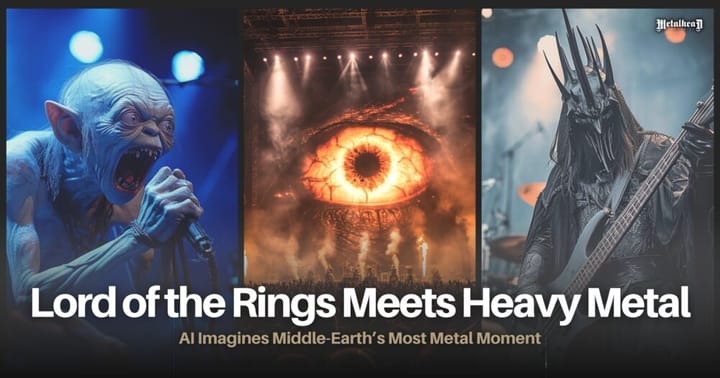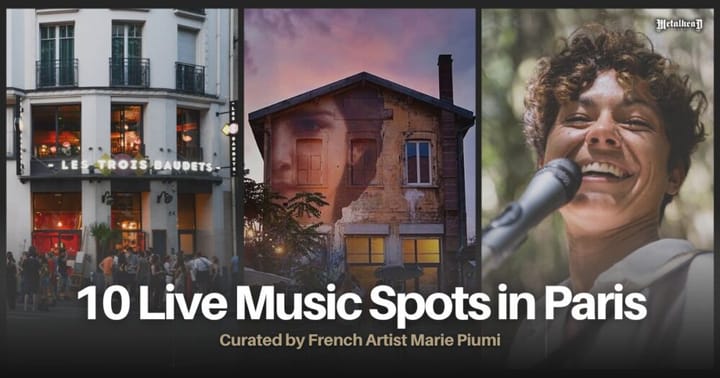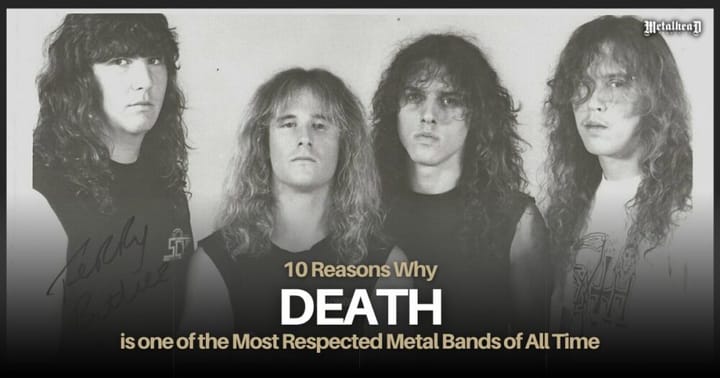Rafał Szewczyk of RSM on the Realities of Pursuing Music as a Lifelong Career Beyond the Mainstream
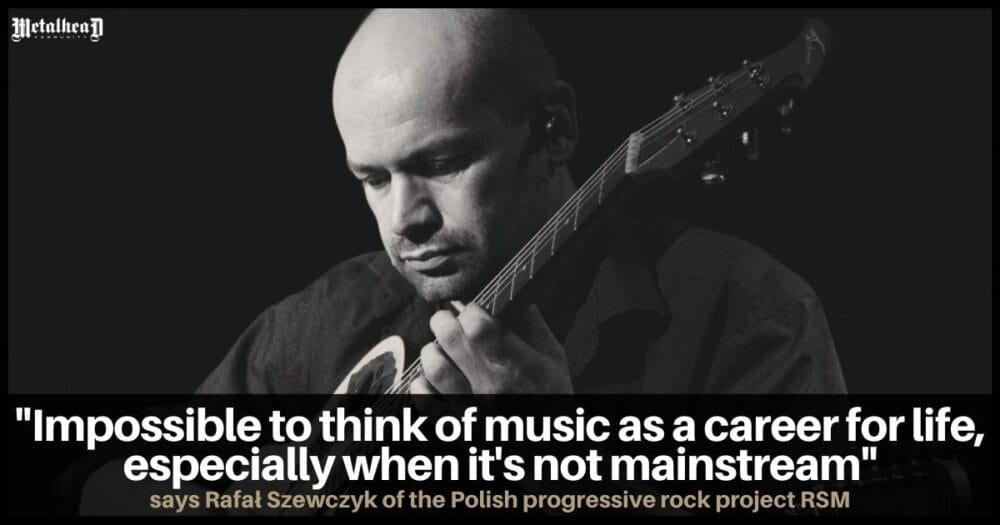
Today, we are together with an impressive composer, producer, and progressive rock artist Rafał Szewczyk, who told about his personal life, new album, collective, future, and rock music in Poland. As some of our readers might recognize, RSM's first full-length studio album No! was released on November 22, 2021, and we have reviewed the album carefully for you, then came to a conclusion that we have found our Rock Album of 2021, it's RSM - No!
RSM – Awakening (Official Music Video) featuring Kjetil Landsgard
Q1 - Please tell us a bit about yourself, what Rafał Szewczyk does for a living?
A1 - Firstly, thank you for the invitation, Metalhead Community – I hope you all enjoy this conversation ;)
A bit about myself? – it may sound weird, but when I think about myself as I see at least two persons in one body – the first one is a professional scientist and researcher working in the mass spectrometry R&D laboratory, the second one has an “artistic soul” focused on music, photography, and art. During my whole life, I was somehow in-between of these two worlds and never finally decided to leave one and completely dive into another – both bring me fulfillment and satisfaction. I think that music, in general, is made for a purpose as any other art – you just have to do it when it comes to you, and it is extremely hard to think of it as a career for life, especially when you do something that is not in the mainstream. Of course, I don’t make money for living out of music ;)
Q2 - How "RSM" was born? How special is this project to you compared to other bands and projects you have been a part of?
A2 - Well, it all began many years ago, like maybe 20-25 years when I bought my first multitrack recorder and started to record my ideas and arrangements. Then joined or formed more or less successful bands. After several years in around 2005, I have abandoned my musical life on stage. Many good and bad things happened – the reality of life…, but I never gave up on music completely and after about 10 years of silence I released my first solo album “Soundscapes” in 2016. The music business started to spin again – with great musicians I have worked with before I started a band “Smash the Crash”. We released an album “PL Lady” in 2019 and did some really good live shows. All ended with the pandemic – I remember that day, because we were preparing to support Pendragon in our hometown, and it was not clear until very last our if it will actually take place or not – finally it was canceled… Anyway, during lockdowns, I found time for my next solo album “No!”.
When I think about RSM and other bands that I work with, the main difference is the way of work. On one hand, I love the work with other people and mutual inspiration during creating and playing the music. On the other hand, when I work by myself I do like the complete control that I have over the music, playing, arrangement, and the way how it finally sounds. Both approaches have their cons and pros for sure!
Q3 - What can you tell us about the story behind the upcoming RSM album; "No!"? What were the main influences for you to write music this time?
A3 - Life? – yes, I think it is always the summary of the small and big things that you experience every day. Any kind of art including music may express one's feelings and concerns as this time in my case. When I started the works on the album I did not have any certain idea about what I am going to play and say. After some time I realized that every new composition reflects my concerns about nowadays society and how stupid, stubborn, lost, unsure, frightened, divided, etc. we all are …, and I said “No!”. So, the main influence of the latest album is literally the world around me.
The best thing was when I first heard lyrics from the guests I invited to join me, especially Kjetil Landsgard. Although we are separated by the ocean, have different backgrounds and ideas about the main reasons for what is happening – we both have the same concerns. Magic? Destiny? Perfect timing? – maybe this is common and many people are aware of it – if yes, there is hope.
Q4 - Are there any differences from your previous records with other projects in terms of writing, recording, or production?
A4 - As I said previously with this and previous solo album I was fully responsible for every aspect of music writing, recording, and production. Well, maybe almost fully responsible because I have asked a few talented artists to join me on the album – Kjetil Landsgard and Leo Barbato who wrote the lyrics and sing, and Rainer Willeke on saxophone. I think they all, but mostly Kjetil, have left their strong imprint on the final music. This was also the first project in my life that relay on online collaboration – it was something new and exciting at the same time – there are literally no borders these days in terms of tools we have :)
The album was recorded in the majority at my home studio, but also in the home studios of the invited guests, produced by me, mixed, and mastered by a talented sound engineer Grzegorz Mukanowski. As every musician, I always hear some notes, articulations, or other things that I simply would like to change after another round of listening. It is a trap of never-ending production ;) In the end, I must say I am pretty happy about the result.
Q5 - What was the image of yourself in the future when you first started your professional music career? In a special collective of individuals, a full band where everybody's contributing, or a special project of you with session musicians?
A5 - First, I think there was no image – I have never really thought about music as a way to make a professional career. I mean if that has happened – great, if not – well, it is not the reason to give up on it. Every work – individual, with the band, or as a session musician improved my skills and understanding of music. The only thing I was always sure of from the very beginning was that I want to make and play original music that is not only focused on fun and simplicity but something more complex and beautiful in terms of harmony, melody, and rhythm. I’m still trying to do it ;)
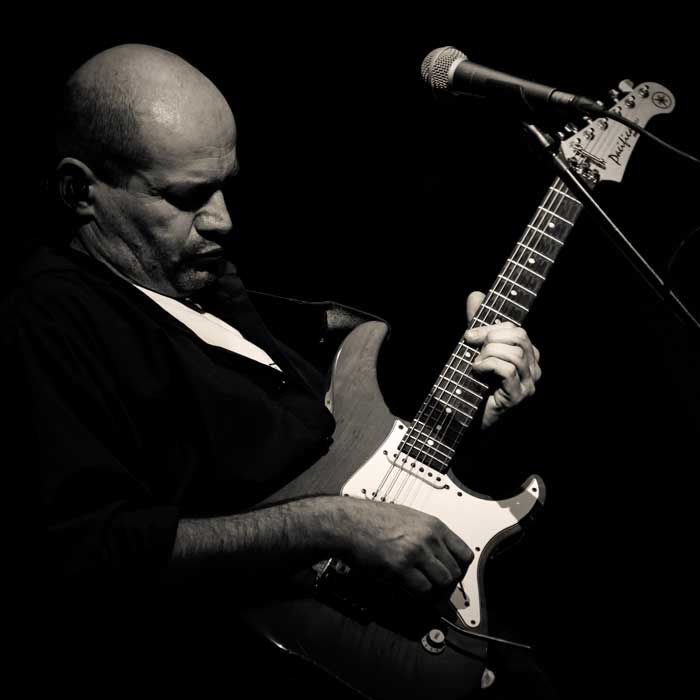
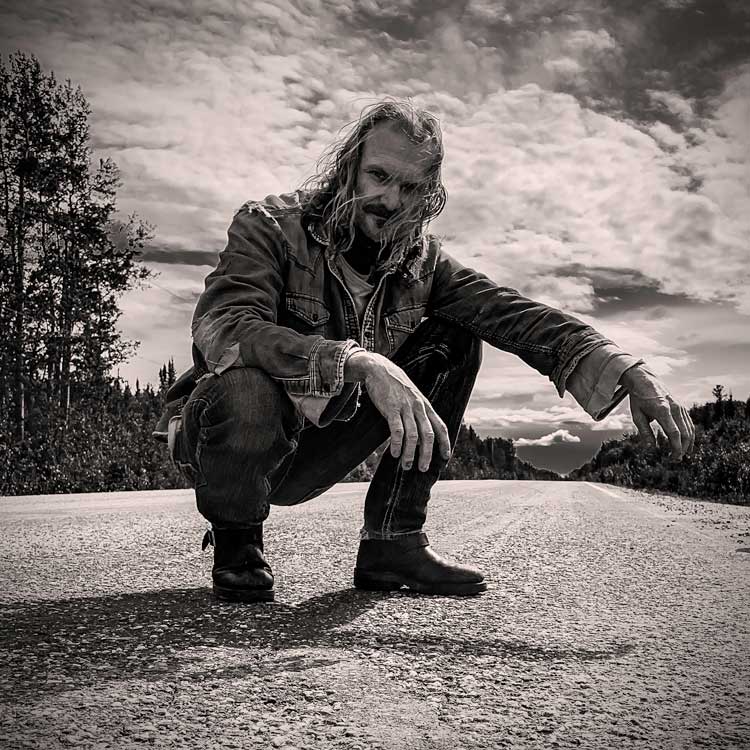
Q6 – Is this musical direction what you have always imagined in your mind, or is it naturally heading somewhere it's destined to?
A6 - It is a natural process and I don’t know where it may lead me next month or next year. I like the fact that it is constant progress – at least from my point of view – in which direction, I’m not sure… and it is ok, I’m open to whatever may happen.
Q7 - Since your debut album release; "No!", how is the feedback so far?
A7 - In fact, I’m a bit surprised that reviews and people’s reactions are so good. I think in songs on the album I managed to “hit the right note” to draw people’s attention, both compositions and arrangements are carefully created to uphold the flow throughout every song – every note has its place and their placement seems to be right, even though sometimes it was an improvised first take during recording ;)
For many years I was focused on instrumental music – this time I decided to invite vocalists to write lyrics and sing, so at the end, there are 4 instrumental songs, and the other 4 with vocals. In my opinion, this completely new perspective for me is something the listeners are got used to over years – I mean, the majority of nowadays music is being sung, so people are automatically more interested in the song with words and a human voice. Maybe I’m wrong, but this might be one of the major factors of positive response in the audience that listened to the album.
Lastly maybe a little bit more “sophisticated” feature about the album – I have read a lot about the sound in general – we all agree that this is a wave and vibration – so what are the best frequencies for us to be heard and felt in music – the perfect one – 432Hz. I was amazed when I first tuned the guitar and other instruments this way – full sound, perfect harmony, everything in the right place. So, every song on the album is tuned in this frequency – a small change made a big difference – maybe not only for me ;)
Q8 - What is your ultimate objective as a professional artist/composer/producer? Where would you like to see yourself in the end?
A8 - I’m not sure… It would be really great if one day I produce an influential album that becomes an iconic example or a milestone of the genre, even if not well known by a big audience a very important for a group of involved people.
In the end, I see myself somewhere in the mountains, far away – but this is a completely different story ;)
Q9 - If RSM was going on a world tour, name 3 artists/bands you'd prefer to have with you on this tour?
A9 - Well, this is difficult to say for me as I was grown and still listen to various kinds of music – rock, prog-rock, jazz, fusion, pop, classical music… I have to leave these questions open :)
Q10 - How does it feel to be an indie artist trying to make records during the pandemic situation?
A10 - This might be weird – but to me personally, there is no difference – I work in my home studio, files can be sent to anyone over the internet to add tracks, mix, or master. With the full band – yes, it could be difficult – practicing and recording need meetings face to face, so during lockdowns, it could be a challenge – in fact, it was in the case of “Smash the Crash” – we are still not recovered after all this time…
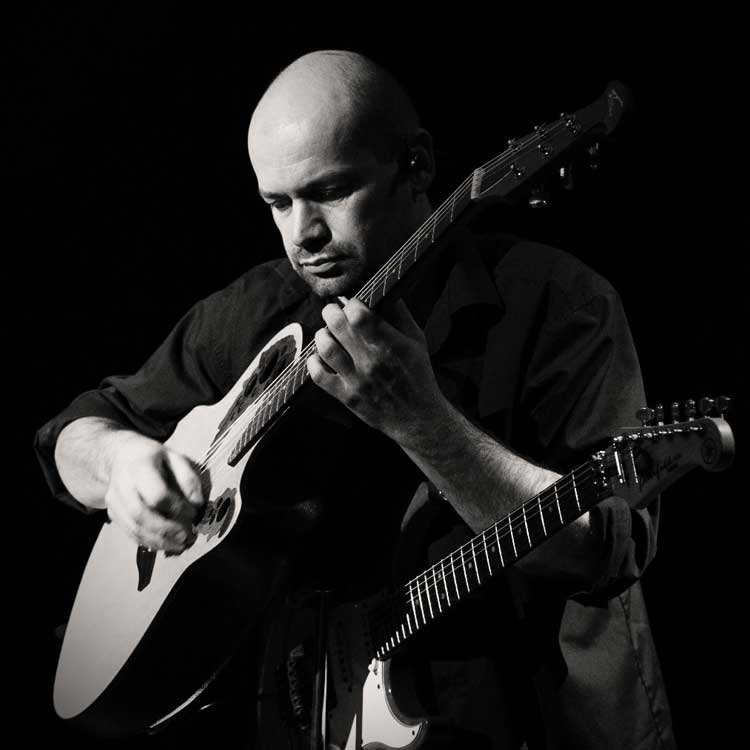
Q11 - How is the current situation there in Poland in terms of live music?
A11 - Not so bad now – there are live shows happening almost normally – of course, there are limits of people who can join, but with an increasing number of vaccinated people it is no longer a big issue. Well, I’m not sure if it will last for long – I hope so.
Q12 - About the current situation in the music industry, do you believe up-and-coming bands have a better chance than before? or they have lost the essence to make the necessary impact on listeners because there are so many people out there constantly making releases?
A12 - There is an answer to your question already :) I mean, today's music industry is so complex to follow. The artist has almost every tool to make, produce and promote their music. The listeners have almost endless possibilities to listen to it almost everywhere – so they are not so focused on it as it was 10 or 20 years ago. Here the problem arises – with so much music in the market it is extremely hard to be exposed to the right people who might be interested in it as there are so many people out there who have access to thousands of music sources. Music perception is so subjective… One thing did not change over the years – first, you need to work hard, have a lot of money to promote your music, and finally, you have to have a good product to be noticed no matter what kind of music you play. If you completed these – maybe you will get the revenue for the next production ;)
Q13 - Which artists/bands do you listen to lately?
A13 - As I said earlier I listen to different kinds of music, there is no one specific genre, so recently I enjoy listening to Joe Bonamassa, Anathema, Dirty Loops, and Matteo Mancuso.
Q14 - Name 5 artists/bands influenced Rafał Szewczyk.
A14 - Endless story and numerous artists – I have to pick more than 5 ;) Not all but most of them are guitar players or just guitar-oriented music. I can divide my influences into 4 stages –
years 1980 –1990 – rock, where I will point Joe Satriani, Van Halen, Living Colour;
years 1990 – 2010 – jazz, and here Pat Metheny, Mike Stern, Chick Corea;
1990 to now – prog-rock: Porcupine Tree, Rush, Dream Theater (the older one);
2010 to now – a mix of everything plus classical music.
Q15 - Lastly, what would you like to say to our readers?
A15 - For all those who managed to come here and read the whole talk – thank you for your time – I hope it was interesting ;)
In general, I would say something that is not related to music – try to be good and open to others, don’t judge before you talk and listen – we all need a united community to somehow overcome these crazy times.
Support independent artists. Again, thank you and take care!
Impossible to think of music as a career for life, especially when it's not mainstream, says Rafał Szewczyk of the Polish progressive rock project RSM
